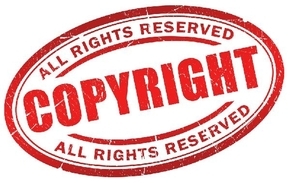Pirating music harms everyone: musicians, producers, distributors and even the consumer. The immediate cost to downloaders is zero, in the form of a free song. But the long-term costs affect everyone. According to the Recording Industry Association of America, 80 percent of all music downloads are illegal. It can be tempting to choose pay nothing by sharing, ripping and downloading it from pirate sites. Users of these sites usually don’t see the negative impact this has on the entire system of music, from creation through production to distribution. Here is a look at how everyone suffers from music piracy.
Musicians and Record Companies
The average musician earns a little over $30,000 a year and gets no benefits. Very few hit the jackpot of fancy cars and mansions in the mountains. They rely on advances from record companies, which are paid to the creator before the recording is actually released to the public. An article on Daily Finance explains that when music is not paid for, the record company doesn’t receive enough money to recoup the advance. In addition, overall sales decrease. The results are they offer fewer advances to struggling musicians and those they make available are smaller. When a consumer doesn’t pay for the song she downloads, the musician doesn’t get compensated for his creativity, time and talent. And the record company doesn’t get paid for the money it cost to find the talent, record the music and distribute the song.
On the other hand, the people who own the pirate sites like Pirate Bay and Kim Dotcom’s Megaupload receive money from the ads on the site, making a hefty profit for their efforts. For musicians, it can lead to a lifetime getting poorly paid for their gifts and passion. They have very little pricing power because their music is available all over the web for free. This means they are forced to take what they can get. Many simply leave the business because they can’t make a living. They also effectively lose copyright protection offered for intellectual property, which covers music, leading some musicians to seek legal advice about how to protect their work. The aim of copyrights is to let authors profit from their creativity, motivating them to keep working.
Consumers
Consumers also suffer from the music piracy epidemic, in the short and long term. In the short-term, music lovers who use pirated music are at the mercy of the file-sharing sites, where viruses, adware and malware are common. There is no way to tell if the song a consumer want to download is safe. Music that is downloaded illegally is not thoroughly documented and users can’t claim official technical support or upgrades and patches. There are also long-term costs. The biggest is that talented musicians will stop creating music that lovers of their songs enjoy. The pool of talent will decease since the musicians can’t make a living if they aren’t getting paid for their work.
In addition, the overall technical quality of music declines when companies are unwilling to spend the money on research. Record companies are hurting because they aren’t getting paid for the songs they release. They must tighten spending to stay in business. This leaves less money for development of innovative software and equipment. There are fewer people employed who can deliver the new ideas that lead to the betterment of music. Those that use pirated music are paying highly for their free music. The costs affect the artists, the record companies, the distributors and each and every consumer.


